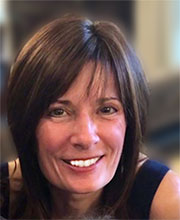 In any given scenario, we are presented with only two choices: Love and Fear. Seems like that would make it easy enough to choose Love. And it would, if Love and Fear really showed up as an angel on one shoulder and a devil on the other.
In any given scenario, we are presented with only two choices: Love and Fear. Seems like that would make it easy enough to choose Love. And it would, if Love and Fear really showed up as an angel on one shoulder and a devil on the other.
Love is full of paradox, though. It is both ancient and childlike, invincible and tender, responsible and free.
And we can mask Fear before we’re even consciously aware that it is Fear. With our helping hand, Fear might appear in a mask as innocent as doubt or indifference. We may convince ourselves that Fear is not Fear at all, and “we’re just waiting for the right opportunity” or “choosing realistically.” Other times, we mask Fear with something as ugly as anger; but justify it and call it Love. And, when our survival seems blatantly threatened, we may see Fear for what it is and claim it as the only choice.
How do you react in the face of fear? Do you instinctively fight, run, or freeze? If you act unconsciously, you do one of the three. And 98 percent of all brain activity is completely unconscious.
So, are we unwittingly choosing a life of fear … a life of pain, and lack, and stress, a life destined to fall short of what we want?
Biology programs us to respond when threatened with our best shot at survival; and one of the threats we’re programmed to respond to is rejection. Society programs us, as well, with what’s normal, what’s acceptable, and what makes us lovable. When we choose Fear, we often feel as though we’re simply choosing to survive, to sustain our worth, to belong, or to be loved.
And choosing Fear is often as simple as clinging to what we used to cope as a child. When faced with separation from a caregiver, we latched on to what we could, based on our environment and our innate personality. And … when we choose Fear, we may get more of what we can quantify—money, education, good looks, and accolades.
We don’t get Love, the only thing that can satisfy our longing for attunement. We want somebody to truly see and know us, to respond to us, and love us … apart from what can be measured, apart from what they can gain from us.
When we feel threatened, though, we often react, or make an emotional choice. We choose fear. Then, maybe before we know it, we rationalize it with a hand-picked mask that soothes us and assures us that everything will be okay tomorrow. Only everything’s not really okay tomorrow, or the next day; and dissonance mounts. The mask is only a temporary fix. Still, we get hooked on it, just as a child gets hooked on a security blanket.
The masks of Fear include anything that helps us to “save face.” They parade as detachment, anger, deception, impatience, doubt, frustration, procrastination, indifference, ignorance, disgust, judgment, superiority, control, and justification. We pick our favorites, our Band-aids, our coping mechanisms. They can feel like old friends. We’ve been using them for a very long time.
Some of the masks of Fear are actually positive traits, i.e., focus, humor, intelligence, helpfulness, and sexuality, used to camouflage our insecurity. No matter how appealing, though, if it dilutes honesty or stifles our freedom, it is Fear wearing an amiable mask. And Fear is not really a friend. It is the only enemy.
The thing we’re most afraid to let go of stands between us and what we want most, Love.
And no matter what mask we unconsciously reach for to shroud our Fear, when we recognize the mask, we also recognize Fear for what it is. And when we recognize Fear and face it head-on with love, we render it helpless.
 Jan's program for the quest of a lifetime.
Jan's program for the quest of a lifetime. Are you ready to live your destiny?
Are you ready to live your destiny?